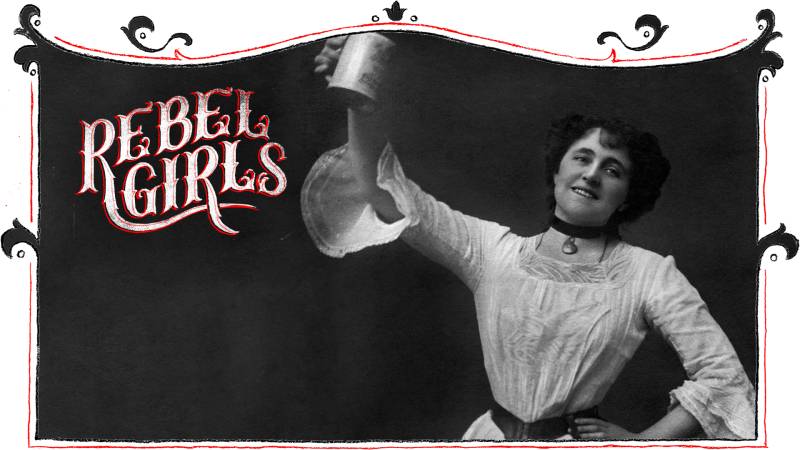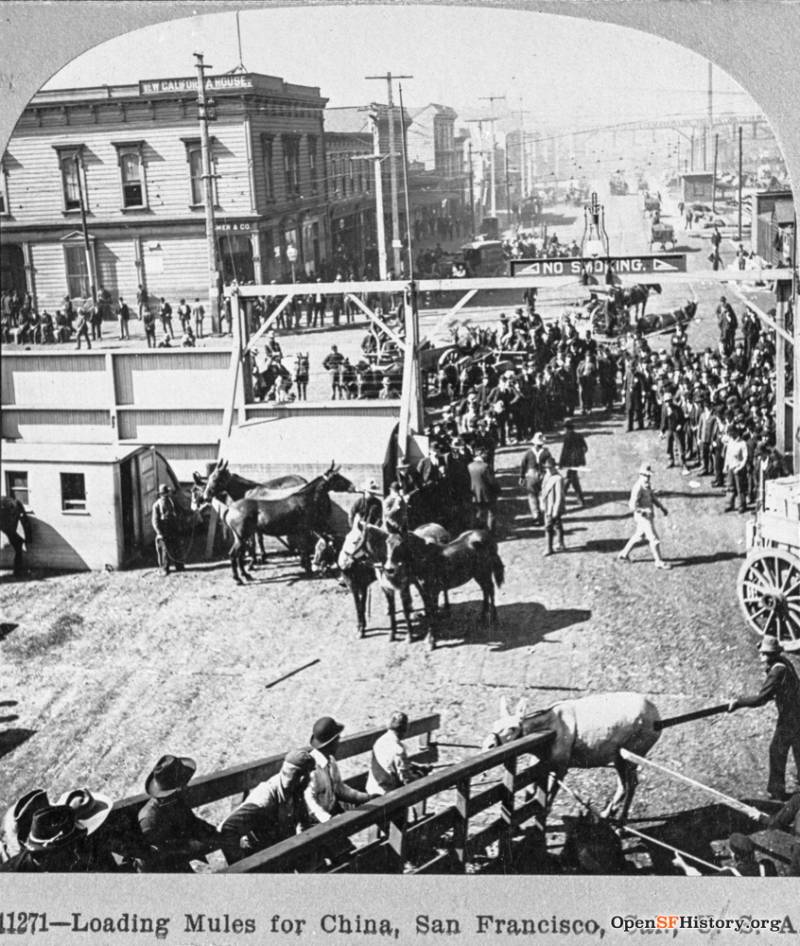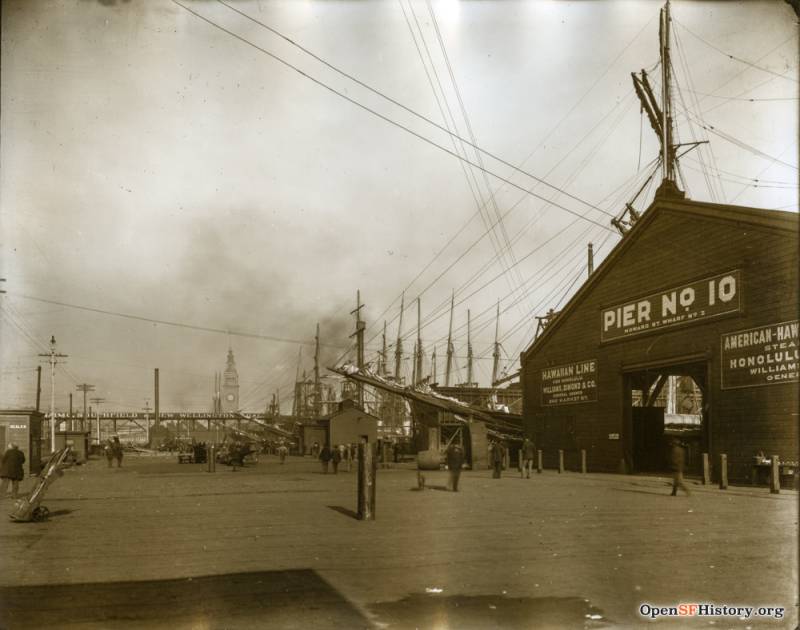Sailors called her “mother,” thieves cursed her name, and for decades she entertained both at her Embarcadero saloon. Mother Thompson, as she was known, may have shared a nickname with a well-known temperance campaigner, but her business was booze, banter, then more booze. It was also her to job to boldly defend her bar during a time when it was dangerous to be a woman behind one.
The Eccentric Saloon Owner Beloved and Defended by 19th-Century Sailors

Mother Thompson’s establishment, named Mrs. Thompson’s, was opposite today’s Rincon Park. Its front door was on Embarcadero between Howard and Folsom, with an additional rear entrance on Steuart Street that faced a vacant lot. The San Francisco Examiner reported in 1901 that one patron attempting to use the back entrance was robbed of his pocket watch by three men. The front entrance wasn’t much safer. In 1918, the Sacramento Bee reported that a 41-year-old sailor named John McMahon was shot in front of the bar by an unknown assailant and died on his way to the Harbor Emergency Hospital.
The trouble didn’t always stay outside the saloon either. On one occasion when a customer refused to pay for his drinks, Thompson simply came out from behind the bar, walked up to the man, and slammed him in the throat with a length of rubber hose. The Oakland Tribune later reported that “he went down as though struck by a pile driver,” and “a couple of swampers [men who performed odd jobs] picked him up and tossed him to the sidewalk.”

Thompson’s regulars — mostly sailors — treated her with the utmost respect, often bringing her gifts from their travels including fine silks, wooden carvings and artificial flowers. When her tavern caught fire in 1916, sailors assisted the firemen tasked with extinguishing the blaze. The Chronicle reported that during the fire, six men in the bar refused to leave, saying “If she goes down, we go with her.”
Thompson returned these kinds of favors by offering tabs and free drinks to friendly seafarers who were down on their luck. In a 1911 story in The San Francisco Call, Thompson — apparently “getting on in years” with gray hair and a “very ample” waistline by then — was quoted as saying, “The sailor byes [boys] has a hard life with nothin’ but a plank between him and death. And so they likes to have what fun they can ashore.”
These men often felt protective of Thompson and assisted her when she was faced with unruly patrons. “Niver have I been insulted by sailor men,” Thompson told The Call. “One or twice a man has started to say something, but always it was a landsman and the byes put him out.”
In 1913, when a towboat captain named Joseph C. Powell demanded repeatedly that someone else in the bar pay for drinks he’d already consumed, Thompson’s regulars were said to have set upon him, beaten him senseless and taken $5 from his pocket to pay her. The Oakland Tribune reported shortly thereafter that Powell was “laid up at the harbor hospital for repairs.”

It is fairly likely, based on the manner in which she was quoted in The Call, that Thompson originally hailed from England. This would also explain her popularity with British sailors — she was the only bartender in San Francisco who served English ale in pewter mugs, as was customary in the U.K. at the time. Sailors from Liverpool flocked to see Thompson every chance they got. One report in The San Francisco Call also mentioned “a swarthy, black-haired Highland Scotchman and a gray-haired old Welsh bosun” enthusiastically singing the sea shanty “Blow the Man Down” at the end of the bar.
Thompson, though well equipped to deal with even the roughest of customers, was also known to sit behind the bar knitting on slow nights. She had raised several children — when they were young, they stayed with her at the bar while she worked — and kept a large gray cockatoo as a pet. The bird hung out at the tavern and was known to occasionally shout “Belay, there!” at noisy customers.
Just how long Mrs. Thompson’s was in operation is now difficult to ascertain. Some turn-of-the-century newspaper articles said only the oldest of sailors would remember exactly when it opened. Based on when newspaper reports about the bar disappeared, it was likely put out of business by Prohibition in 1920.
What we do know is that between 1900 and 1940, women like Mother Thompson made up just 2% of the bartending workforce. Things got even worse in 1948 when a Supreme Court ruling stopped women from working as bartenders in any establishment that wasn’t owned by their father or husband, or in any town that had a population over 50,000 people. The law was designed to force women back out from behind the bar after the boom in female bartending that had happened during World War II. That law wasn’t overturned until 1971.
Mother Thompson had neither the time nor the inclination to worry about whether or not her profession was suitable for someone of her gender. This undoubtedly eccentric woman was concerned only about living her life on her own terms from beneath her signature black straw bonnet. But Thompson also served as an important early example of just how successful a female bar owner could be — not to mention how beloved.
“She has a deal of kindness in her eyes,” The San Francisco Call once noted, “and she smiles when she talks of the seafaring men.”

To learn about other Rebel Girls from Bay Area History, visit the Rebel Girls homepage.

